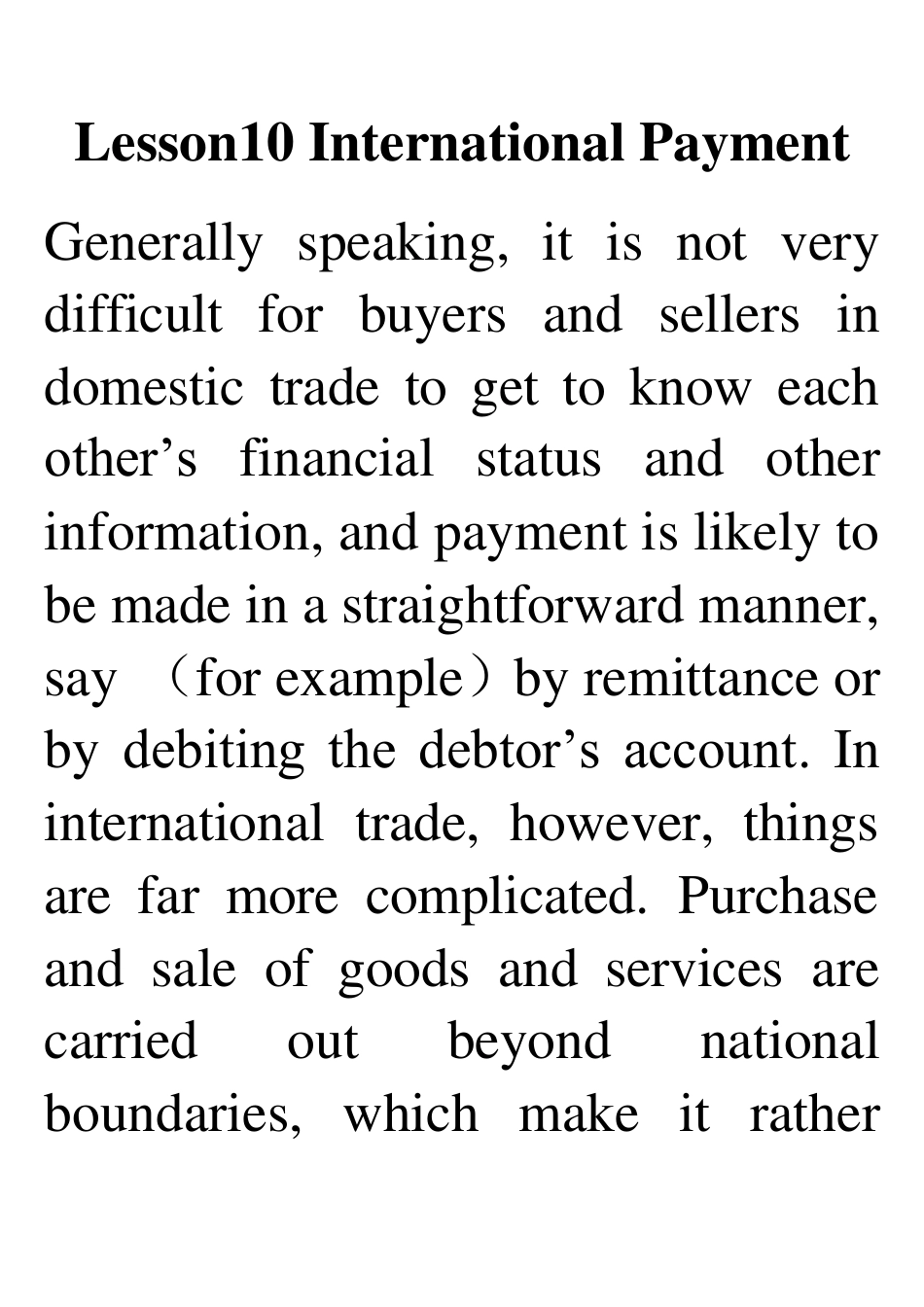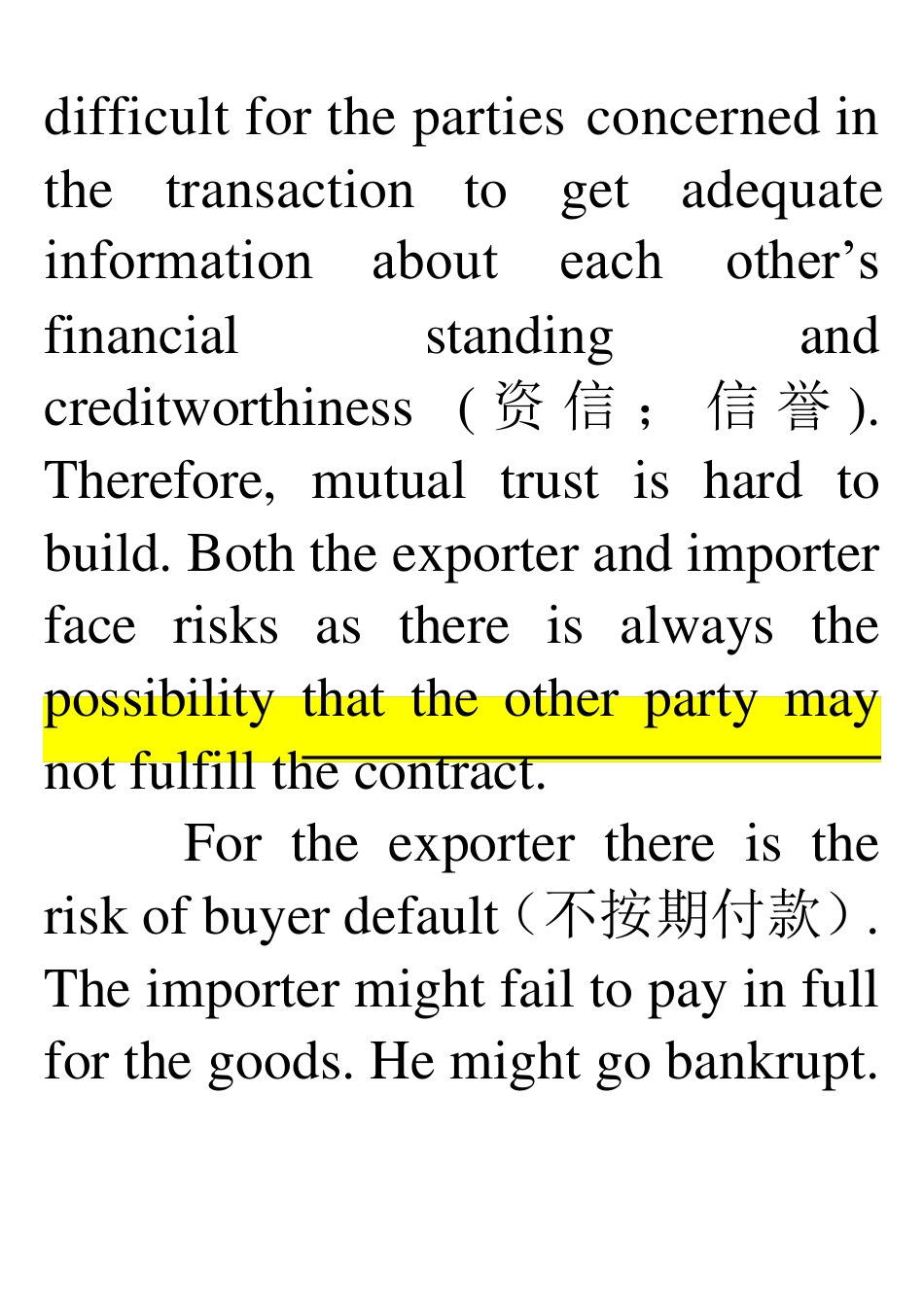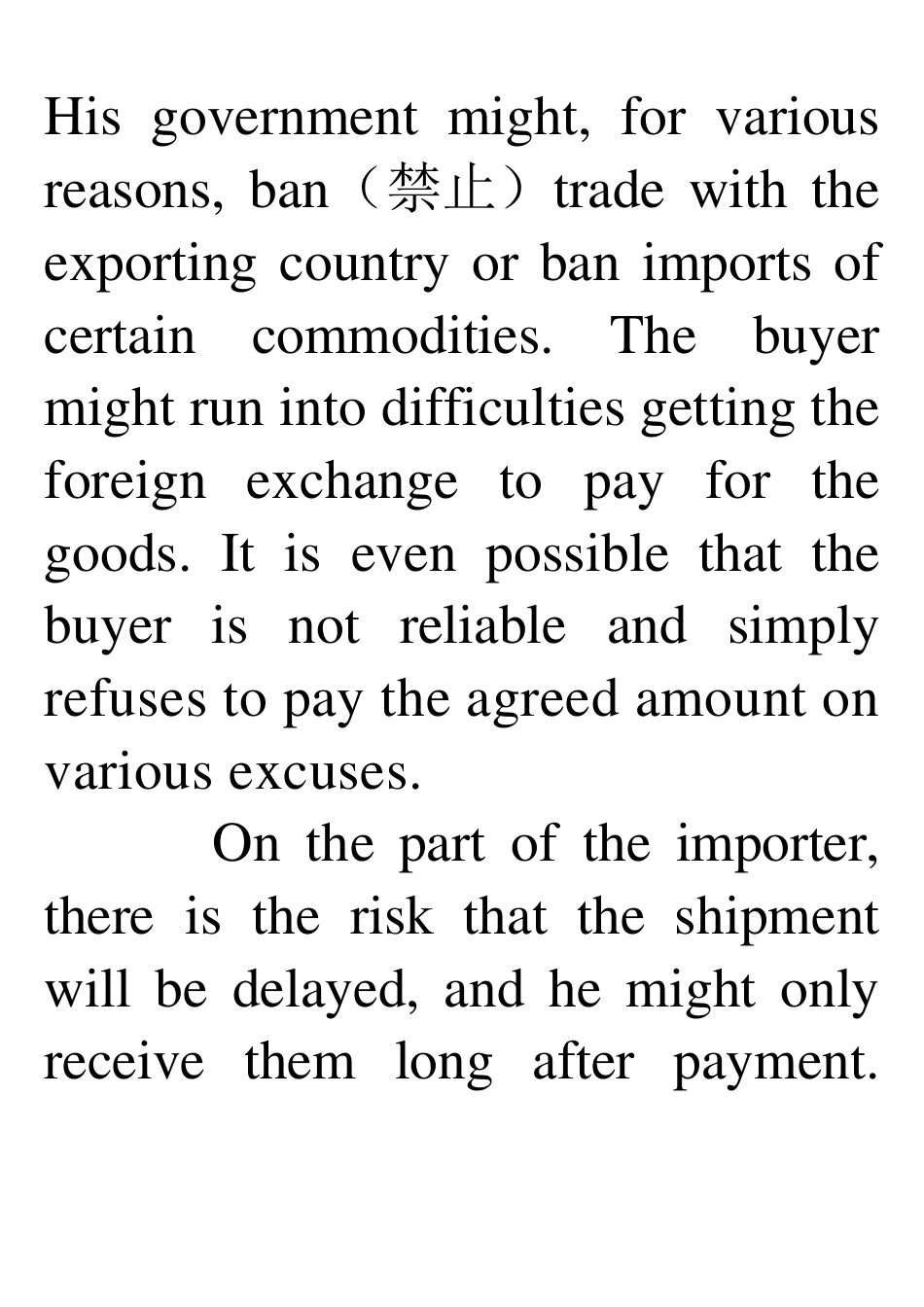Lesson10 International Pay ment Generally speaking, it is not very difficult for buyers and sellers in domestic trade to get to know each other’s financial status and other information, and payment is likely to be made in a straightforward manner, say (for example)by remittance or by debiting the debtor’s account. In international trade, however, things are far more complicated. Purchase and sale of goods and services are carried out beyond national boundaries, which make it rather difficult for the parties concerned in the transaction to get adequate information about each other’s financial standing and creditworthiness ( 资信;信誉). Therefore, mutual trust is hard to build. Both the exporter and importer face risks as there is always the possibility that the other party may not fulfill the contract. For the exporter there is the risk of buyer default(不按期付款). The importer might fail to pay in full for the goods. He might go bankrupt. His government might, for various reasons, ban(禁止)trade with the exporting country or ban imports of certain commodities. The buyer might run into difficulties getting the foreign exchange to pay for the goods. It is even possible that the buyer is not reliable and simply refuses to pay the agreed amount on various excuses. On the part of the importer, there is the risk that the shipment will be delayed, and he might only receive them long after payment. The delay may be caused by problems in production or transportation, and such delays may lead to loss of business. There is also a risk that wrong goods might be sent as a result of negligence(疏忽大意) of the exporter or simply because of his lack of integrity(honesty). Political risks su...


